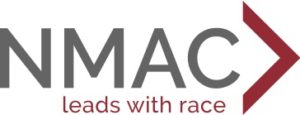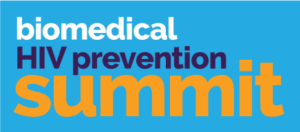
Program Committee Members
Carmarion D. Anderson-Harvey
 Carmarion D. Anderson-Harvey is a vibrant and visible trans woman of color with a passion for inclusion and equality for all. Carmarion is the Alabama State Director with the Human Rights Campaign (HRC) under the Project One America initiative. Carmarion became the first trans person of color to serve in a leadership role with HRC in the organization’s history. Before joining HRC and relocating to Alabama, Carmarion worked in the field of Public Health and Education in Texas, managing both local and national prevention initiatives focusing on HIV/AIDS and other health disparities that impact marginalized communities. Carmarion is the founder and previous Executive Director for Black Transwomen, Inc., which is the first national non-profit organization with a 501 (c)(3) with a programmatic focus to uplift the voices, hearts, and souls of black trans women and in alliance with the Black Trans Advocacy Coalition. Carmarion also brings a wealth of experience in faith spaces, currently serving as the National Co-Minister and South Regional Coordinator for TransSaints ministry of The Fellowship of Affirming Ministries (TFAM). Carmarion was born and reared in Dallas, Texas, with family roots from Natchez, Mississippi. Carmarion is a wife, has one son, four bonus sons, and three adorable grandchildren.
Carmarion D. Anderson-Harvey is a vibrant and visible trans woman of color with a passion for inclusion and equality for all. Carmarion is the Alabama State Director with the Human Rights Campaign (HRC) under the Project One America initiative. Carmarion became the first trans person of color to serve in a leadership role with HRC in the organization’s history. Before joining HRC and relocating to Alabama, Carmarion worked in the field of Public Health and Education in Texas, managing both local and national prevention initiatives focusing on HIV/AIDS and other health disparities that impact marginalized communities. Carmarion is the founder and previous Executive Director for Black Transwomen, Inc., which is the first national non-profit organization with a 501 (c)(3) with a programmatic focus to uplift the voices, hearts, and souls of black trans women and in alliance with the Black Trans Advocacy Coalition. Carmarion also brings a wealth of experience in faith spaces, currently serving as the National Co-Minister and South Regional Coordinator for TransSaints ministry of The Fellowship of Affirming Ministries (TFAM). Carmarion was born and reared in Dallas, Texas, with family roots from Natchez, Mississippi. Carmarion is a wife, has one son, four bonus sons, and three adorable grandchildren.
Natalie Sanchez
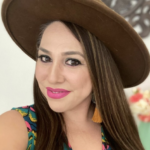 Natalie is a third generation Mexican-American born and raised in the San Fernando Valley. She is a two time BRUIN with a Master in Public Health degree from UCLA’s Executive MPH Program and holds a Bachelor degree in Sociology. She is well-known for her work as creator, Executive Producer, and writer of the award-winning telenovela web series “Sin Vergüenza” which addresses HIV in Latino communities. Natalie has created and led some of the largest and most successful multicultural HIV campaigns as well as implemented a combination of public health strategies to reduce HIV infections in Southern California. Sin Vergüenza, Ask Me About PrEP, Free to Be campaigns have become prominent HIV educational tools among community health organizations across the country aimed at reducing HIV health disparities. She is not only a leader in HIV but has broken into the film industry where she has used film for public health messages and had created a space showcasing Latinos and LGBTQ persons as main characters in their own lives. Natalie is the Director of UCLA Family AIDS Network where she manages a network of providers serving women, infant, children and youth living with HIV in Los Angeles.
Natalie is a third generation Mexican-American born and raised in the San Fernando Valley. She is a two time BRUIN with a Master in Public Health degree from UCLA’s Executive MPH Program and holds a Bachelor degree in Sociology. She is well-known for her work as creator, Executive Producer, and writer of the award-winning telenovela web series “Sin Vergüenza” which addresses HIV in Latino communities. Natalie has created and led some of the largest and most successful multicultural HIV campaigns as well as implemented a combination of public health strategies to reduce HIV infections in Southern California. Sin Vergüenza, Ask Me About PrEP, Free to Be campaigns have become prominent HIV educational tools among community health organizations across the country aimed at reducing HIV health disparities. She is not only a leader in HIV but has broken into the film industry where she has used film for public health messages and had created a space showcasing Latinos and LGBTQ persons as main characters in their own lives. Natalie is the Director of UCLA Family AIDS Network where she manages a network of providers serving women, infant, children and youth living with HIV in Los Angeles.
Lucas Rojas
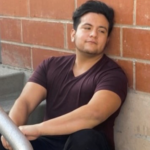 Lucas Rojas (he/they) is a Latinx transmasculine identified individual who works at Children’s Hospital Los Angeles in the Center for Transyouth Health and Development in Health Services, Clinical and Behavioral Research, specifically with transgender/non-binary/gender non-conforming youth and young adults as well as in data analysis and is the Director of Research for the Non-Binary & Intersex Recognition Project. They also serve as the National Director of Operations for FLUX aiming to raise the profile of Trans and Gender Non-Conforming community. They have a background in Mathematics, Statistics, HIV&STI testing and as a former client is an advocate in the transgender community.
Lucas Rojas (he/they) is a Latinx transmasculine identified individual who works at Children’s Hospital Los Angeles in the Center for Transyouth Health and Development in Health Services, Clinical and Behavioral Research, specifically with transgender/non-binary/gender non-conforming youth and young adults as well as in data analysis and is the Director of Research for the Non-Binary & Intersex Recognition Project. They also serve as the National Director of Operations for FLUX aiming to raise the profile of Trans and Gender Non-Conforming community. They have a background in Mathematics, Statistics, HIV&STI testing and as a former client is an advocate in the transgender community.
Louis Shackelford
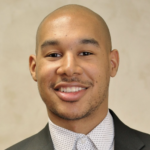 Louis Shackelford is an External Relations Project Manager in the HIV Vaccine Trials Network (HVTN) Leadership and Operations Center at Fred Hutchinson Cancer Research Center in Seattle, WA. As External Relations Project Manager, Louis’ primary focus is implementing stakeholder engagement strategies in HIV vaccine clinical trials domestically and globally. These strategies create opportunities for consultation with key stakeholders and communities to inform the design and implementation of HVTN studies. Consultations optimize the inclusion and participation of populations and communities who bear the greatest burden of HIV.
Louis Shackelford is an External Relations Project Manager in the HIV Vaccine Trials Network (HVTN) Leadership and Operations Center at Fred Hutchinson Cancer Research Center in Seattle, WA. As External Relations Project Manager, Louis’ primary focus is implementing stakeholder engagement strategies in HIV vaccine clinical trials domestically and globally. These strategies create opportunities for consultation with key stakeholders and communities to inform the design and implementation of HVTN studies. Consultations optimize the inclusion and participation of populations and communities who bear the greatest burden of HIV.
Carlos Rodríguez-Díaz
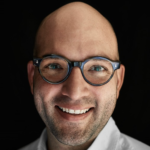 Dr. Carlos Rodriguez-Diaz is public health scientist with twenty years of experience in HIV research. His work has focused in the areas of community health, sexual health promotion, and health equity through actions on the social determinants of health. He has served as lead in several programs and studies addressing health inequities among populations made socially vulnerable including Hispanic/Latinxs, incarcerated populations, and LGBTQ individuals in Puerto Rico, the United States of America, and the Caribbean Region. Dr. Rodriguez-Diaz is Associate Professor of Prevention and Community Health and Director of the Community-Oriented Primary Care Program at The George Washington University-Milken Institute School of Public Health and Adjunct Professor at the University of Puerto Rico-Medical Sciences Campus. He completed post-doctoral training in HIV and Global Health Research, a PhD in Public Health with a major in Community Health Education, and a MPH in Health Education. He has also completed post-graduate training in health policy, human rights, and health diplomacy.
Dr. Carlos Rodriguez-Diaz is public health scientist with twenty years of experience in HIV research. His work has focused in the areas of community health, sexual health promotion, and health equity through actions on the social determinants of health. He has served as lead in several programs and studies addressing health inequities among populations made socially vulnerable including Hispanic/Latinxs, incarcerated populations, and LGBTQ individuals in Puerto Rico, the United States of America, and the Caribbean Region. Dr. Rodriguez-Diaz is Associate Professor of Prevention and Community Health and Director of the Community-Oriented Primary Care Program at The George Washington University-Milken Institute School of Public Health and Adjunct Professor at the University of Puerto Rico-Medical Sciences Campus. He completed post-doctoral training in HIV and Global Health Research, a PhD in Public Health with a major in Community Health Education, and a MPH in Health Education. He has also completed post-graduate training in health policy, human rights, and health diplomacy.
Brandon A. Harrison
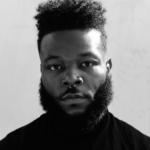 Brandon Harrison is a Project Manager and Trainer on the Performance Improvement team at the Primary Care Development Corporation (PCDC). Brandon provides training and technical assistance to health care organizations across the country. He has served in leadership positions implementing sexual health programs across the country in communities most impacted by health disparities. Throughout Brandon’s career, he has been diligent in raising awareness to issues such as stigma, HIV/AIDS, LGBTQ issues, violence, sex work, and other issues affecting vulnerable communities. Brandon remains a leader, supporter, and role model encouraging others to continue their resilience.
Brandon Harrison is a Project Manager and Trainer on the Performance Improvement team at the Primary Care Development Corporation (PCDC). Brandon provides training and technical assistance to health care organizations across the country. He has served in leadership positions implementing sexual health programs across the country in communities most impacted by health disparities. Throughout Brandon’s career, he has been diligent in raising awareness to issues such as stigma, HIV/AIDS, LGBTQ issues, violence, sex work, and other issues affecting vulnerable communities. Brandon remains a leader, supporter, and role model encouraging others to continue their resilience.
José Ramón García Madrid
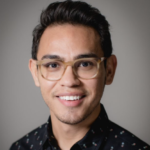 Jose Ramón García Madrid was born in San Buenaventura, Chihuahua, Mexico, and immigrated to the United States with his family at two years old. Growing up as a part of the undocumented immigrant community in Phoenix, Arizona is an experience that continues to inspire José’s personal and professional life. He is equally committed to work that empowers Black, Latinx and Indigenous communities who identify within LGB, Trans, Queer and Gender Non-Conforming communities. He is also currently a second-year law student at the University of Colorado in Boulder.
Jose Ramón García Madrid was born in San Buenaventura, Chihuahua, Mexico, and immigrated to the United States with his family at two years old. Growing up as a part of the undocumented immigrant community in Phoenix, Arizona is an experience that continues to inspire José’s personal and professional life. He is equally committed to work that empowers Black, Latinx and Indigenous communities who identify within LGB, Trans, Queer and Gender Non-Conforming communities. He is also currently a second-year law student at the University of Colorado in Boulder.
James Krellenstein
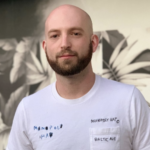 James Krellenstein is a twenty-nine years old infectious disease activist focusing on scaling up effective interventions to dramatically reduce the spread of infectious diseases in the United States. At 18, he designed and built the nation’s directory of HIV post-exposure prophylaxis (PEP) providers. In college, following his own experience with antiquated HIV testing technology, he played a pivotal role in successfully pressuring the CDC and FDA to expedite the introduction of the first rapid point of care fourth–generation HIV test nationwide. In New York, James identified a previously unknown reduction in delivery of critical HIV testing and prevention services and helped lead a successful effort to increase the city’s health budget by tens of millions of dollars to reverse this. In 2017, James discovered a pattern of alleged anti–competitive practices by the nation’s largest manufacturer of HIV medications, which led to a class–action antitrust lawsuit currently being litigated in Federal Court in San Francisco. In 2018, he co-founded the PrEP4All Collaboration, which is pressuring the federal government to end the monopoly on Truvada and Descovy, the only drugs currently approved for PrEP. As part of the PrEP4All, he headed up a team that identified and publicized the existence of taxpayer–owned patents protecting PrEP, resulting in a Congressional hearing over the price of PrEP, a Government Accountability Office investigation, and a federal lawsuit by the United States government against the current manufacturer of PrEP. Most recently, he co-founded the COVID-19 Working Group, where he headed up a successful effort to expedite the initiation of social distancing in New York City. He holds degrees in physics as well as natural science and mathematics.
James Krellenstein is a twenty-nine years old infectious disease activist focusing on scaling up effective interventions to dramatically reduce the spread of infectious diseases in the United States. At 18, he designed and built the nation’s directory of HIV post-exposure prophylaxis (PEP) providers. In college, following his own experience with antiquated HIV testing technology, he played a pivotal role in successfully pressuring the CDC and FDA to expedite the introduction of the first rapid point of care fourth–generation HIV test nationwide. In New York, James identified a previously unknown reduction in delivery of critical HIV testing and prevention services and helped lead a successful effort to increase the city’s health budget by tens of millions of dollars to reverse this. In 2017, James discovered a pattern of alleged anti–competitive practices by the nation’s largest manufacturer of HIV medications, which led to a class–action antitrust lawsuit currently being litigated in Federal Court in San Francisco. In 2018, he co-founded the PrEP4All Collaboration, which is pressuring the federal government to end the monopoly on Truvada and Descovy, the only drugs currently approved for PrEP. As part of the PrEP4All, he headed up a team that identified and publicized the existence of taxpayer–owned patents protecting PrEP, resulting in a Congressional hearing over the price of PrEP, a Government Accountability Office investigation, and a federal lawsuit by the United States government against the current manufacturer of PrEP. Most recently, he co-founded the COVID-19 Working Group, where he headed up a successful effort to expedite the initiation of social distancing in New York City. He holds degrees in physics as well as natural science and mathematics.
Sean Bland
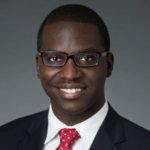 Sean Bland is a Senior Associate at the O’Neill Institute for National and Global Health Law at Georgetown University Law Center and works on HIV/AIDS law and policy initiatives. Sean manages diverse projects to assist policymakers and HIV community stakeholders assess policy options for sustaining and adapting the Ryan White HIV/AIDS Program and implementing the National HIV/AIDS Strategy and the Ending the HIV Epidemic Initiative. He also leads projects related to the deployment of pre-exposure prophylaxis (PrEP) among communities of color and adolescents and the impact of laws and policies on the health and safety of people who engage in sex work. Sean holds a Juris Doctor from Georgetown University Law Center and a Bachelor of Arts in Psychology and German Studies from Yale University.
Sean Bland is a Senior Associate at the O’Neill Institute for National and Global Health Law at Georgetown University Law Center and works on HIV/AIDS law and policy initiatives. Sean manages diverse projects to assist policymakers and HIV community stakeholders assess policy options for sustaining and adapting the Ryan White HIV/AIDS Program and implementing the National HIV/AIDS Strategy and the Ending the HIV Epidemic Initiative. He also leads projects related to the deployment of pre-exposure prophylaxis (PrEP) among communities of color and adolescents and the impact of laws and policies on the health and safety of people who engage in sex work. Sean holds a Juris Doctor from Georgetown University Law Center and a Bachelor of Arts in Psychology and German Studies from Yale University.
Milton E. Rodríguez Padilla
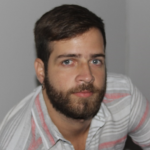 Milton Rodríguez Padilla is an educator in public health from the University of Puerto Rico, Medical Sciences Campus. He is currently part of the Sex+TEAM, a research group part of the Public Health School focused on sexual health and advocacy for LGBT+ populations. Milton has dedicated recent years to HIV prevention through increasing PrEP awareness, HIV research, and implementing interventions towards the wellbeing of LGBT+ youth’s in Puerto Rico. He also co-authored “Incurrectas”, a book aiming to rescue the stories of prominent women of Puerto Rico and is currently a graduate student of the LGBT Policy and Practice Program from the George Washington University.
Milton Rodríguez Padilla is an educator in public health from the University of Puerto Rico, Medical Sciences Campus. He is currently part of the Sex+TEAM, a research group part of the Public Health School focused on sexual health and advocacy for LGBT+ populations. Milton has dedicated recent years to HIV prevention through increasing PrEP awareness, HIV research, and implementing interventions towards the wellbeing of LGBT+ youth’s in Puerto Rico. He also co-authored “Incurrectas”, a book aiming to rescue the stories of prominent women of Puerto Rico and is currently a graduate student of the LGBT Policy and Practice Program from the George Washington University.
Rona Siskind
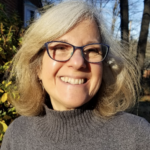 Rona Siskind, MHS works at the Division of AIDS, National Institute of Allergy and Infectious Disease, NIH, focusing on community engagement, training, and communications in HIV vaccine and prevention, and more recently, COVID-19 research. She is an active member of Community Partners, which facilitates global community representation in NIAID’s HIV/AIDS research, and the Legacy Project, which works to increase awareness of and support for HIV research among historically underrepresented communities. She also convenes the Cross-Network Transgender Working Group to promote transgender awareness and inclusion. Ms. Siskind serves on the ACTIV-2 COVID-19 Community Advisory Board, COVID-19 Prevention Network Community Working Group, and CoVPN Community Engagement Planning Team, working to ensure that COVID-19 research is inclusive of the diverse communities hardest hit by the pandemic.
Rona Siskind, MHS works at the Division of AIDS, National Institute of Allergy and Infectious Disease, NIH, focusing on community engagement, training, and communications in HIV vaccine and prevention, and more recently, COVID-19 research. She is an active member of Community Partners, which facilitates global community representation in NIAID’s HIV/AIDS research, and the Legacy Project, which works to increase awareness of and support for HIV research among historically underrepresented communities. She also convenes the Cross-Network Transgender Working Group to promote transgender awareness and inclusion. Ms. Siskind serves on the ACTIV-2 COVID-19 Community Advisory Board, COVID-19 Prevention Network Community Working Group, and CoVPN Community Engagement Planning Team, working to ensure that COVID-19 research is inclusive of the diverse communities hardest hit by the pandemic.
Sheldon Raymore
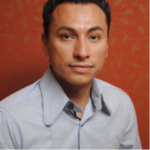 Sheldon Raymore is a member of the Cheyenne River Sioux Tribe and lives in New York City. Since 2014 their mission has been to increase HIV/AIDS awareness, sexual health education, and accessibility of PrEP services for the Two–Spirit community and beyond. They are the creator of www.PrEPahHontoz.com which provides an enriching awareness experience, with culturally competent and appropriate methods of increasing PrEP awareness. The PrEPahHontoz Tipi project decreases social and cultural stigma’s associated with HIV/AIDS, and HIV Prevention. It also disseminates correct information about HIV and it’s history in the Native American community, while utilizing “culture as prevention.” They currently volunteer for the American Indian Community House, serve on a Native American “Ending the Epidemic” Advisory Group with the AIDS Institute of New York State and serve on NMAC’s Native Constituent Advisory Panel (CAP).
Sheldon Raymore is a member of the Cheyenne River Sioux Tribe and lives in New York City. Since 2014 their mission has been to increase HIV/AIDS awareness, sexual health education, and accessibility of PrEP services for the Two–Spirit community and beyond. They are the creator of www.PrEPahHontoz.com which provides an enriching awareness experience, with culturally competent and appropriate methods of increasing PrEP awareness. The PrEPahHontoz Tipi project decreases social and cultural stigma’s associated with HIV/AIDS, and HIV Prevention. It also disseminates correct information about HIV and it’s history in the Native American community, while utilizing “culture as prevention.” They currently volunteer for the American Indian Community House, serve on a Native American “Ending the Epidemic” Advisory Group with the AIDS Institute of New York State and serve on NMAC’s Native Constituent Advisory Panel (CAP).
Megan Canon
 Megan Canon, MPH, is a passionate public health leader with over twelve years of experience championing HIV prevention and PrEP in Colorado, California, and Texas. She currently is the Biomedical Intervention Coordinator at the Colorado Department of Public Health and Environment where she oversees PrEP, PEP, and syringe access programming for the state. Previously, she worked at the Houston Health Department as their PrEP Program Coordinator and at the San Francisco AIDS Foundation where she founded PrEPfacts.org. Megan holds a bachelor’s degree in biochemistry from the University of Colorado of Boulder and a master of public health degree from the University of California Berkeley.
Megan Canon, MPH, is a passionate public health leader with over twelve years of experience championing HIV prevention and PrEP in Colorado, California, and Texas. She currently is the Biomedical Intervention Coordinator at the Colorado Department of Public Health and Environment where she oversees PrEP, PEP, and syringe access programming for the state. Previously, she worked at the Houston Health Department as their PrEP Program Coordinator and at the San Francisco AIDS Foundation where she founded PrEPfacts.org. Megan holds a bachelor’s degree in biochemistry from the University of Colorado of Boulder and a master of public health degree from the University of California Berkeley.
Moctezuma García
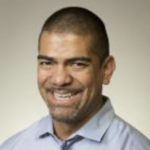 Dr. García is an Assistant Professor at San José State University and specializes in health inequities, intersectionality, social stratification, infectious diseases, sexual and gender minorities of color. Research endeavors have focused on mixed-methods approaches exploring HIV-related risk and protective factors for sexual and gender minorities of color throughout the United States. He was responsible for developing and implementing a culturally informed community–based program to detect and respond to HIV cluster outbreaks (Molecular HIV Surveillance) among Latino/a/x for the Houston Health Department. Dr. García was also a consultant for UNICEF and international agencies addressing human rights issues for highly vulnerable populations. He is currently part of an interdisciplinary team at the University of Chicago developing a community–based COVID-19 intervention for highly vulnerable populations throughout the United States. He has a Ph.D. from the Graduate Center at the City University of New York and an MS from Columbia University School of Social Work.
Dr. García is an Assistant Professor at San José State University and specializes in health inequities, intersectionality, social stratification, infectious diseases, sexual and gender minorities of color. Research endeavors have focused on mixed-methods approaches exploring HIV-related risk and protective factors for sexual and gender minorities of color throughout the United States. He was responsible for developing and implementing a culturally informed community–based program to detect and respond to HIV cluster outbreaks (Molecular HIV Surveillance) among Latino/a/x for the Houston Health Department. Dr. García was also a consultant for UNICEF and international agencies addressing human rights issues for highly vulnerable populations. He is currently part of an interdisciplinary team at the University of Chicago developing a community–based COVID-19 intervention for highly vulnerable populations throughout the United States. He has a Ph.D. from the Graduate Center at the City University of New York and an MS from Columbia University School of Social Work.
Melissa Turner
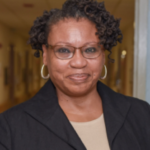 Melissa M. Turner, MSW, LICSW, MPA, chair of the HPTN Community Working Group and HPTN Executive Committee member, has been integrally involved in patient care management and HIV clinical trials for more than 20 years. She is a clinical social worker in the Infectious Diseases Section at the Veterans Affairs Medical Center in Washington, D.C. Melissa is also the community advisory board liaison at the George Washington University HPTN CRS and community engagement specialist for HIV research trials at the local and international level for U.S. National Institutes of Health-funded clinical trial networks. She recently joined the community working group for the newly formed COVID Prevention Network (CoVPN). Melissa specializes in community education, bridging the divide between science and community, and works to integrate community needs and perspectives in all aspects of clinical trial design from conception, implementation, and results dissemination.
Melissa M. Turner, MSW, LICSW, MPA, chair of the HPTN Community Working Group and HPTN Executive Committee member, has been integrally involved in patient care management and HIV clinical trials for more than 20 years. She is a clinical social worker in the Infectious Diseases Section at the Veterans Affairs Medical Center in Washington, D.C. Melissa is also the community advisory board liaison at the George Washington University HPTN CRS and community engagement specialist for HIV research trials at the local and international level for U.S. National Institutes of Health-funded clinical trial networks. She recently joined the community working group for the newly formed COVID Prevention Network (CoVPN). Melissa specializes in community education, bridging the divide between science and community, and works to integrate community needs and perspectives in all aspects of clinical trial design from conception, implementation, and results dissemination.
DeMarc A. Hickson
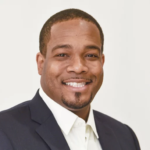 DeMarc has nearly 20 years of public health experience, having worked with federal, academic, and non-profit agencies. As an alum of Norfolk State University with a Bachelor’s degree in Applied Mathematics and Ph.D.-level Biostatistician, he has completed a variety of certifications and trainings, including the HPTN and MACC Scholars Programs. Dr. Hickson is an avid “urban farmer” and traveler.
DeMarc has nearly 20 years of public health experience, having worked with federal, academic, and non-profit agencies. As an alum of Norfolk State University with a Bachelor’s degree in Applied Mathematics and Ph.D.-level Biostatistician, he has completed a variety of certifications and trainings, including the HPTN and MACC Scholars Programs. Dr. Hickson is an avid “urban farmer” and traveler.
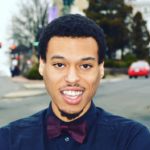 I am tasked with writing an article about Gay Black men, one of the hardest things I must do to date. If I were asked a year ago, it would be the easiest thing in the world, back when my life revolved around being what I deemed a “Black Gay Man.” However, as of recently, I am at a loss for words when it comes to this idea of Black gay men. As much as I crave the community of other Black gay men, I also fear it. I fear that the relationships I build will hurt me and I fear that the life I always thought I wanted was something that did more damage than good.
I am tasked with writing an article about Gay Black men, one of the hardest things I must do to date. If I were asked a year ago, it would be the easiest thing in the world, back when my life revolved around being what I deemed a “Black Gay Man.” However, as of recently, I am at a loss for words when it comes to this idea of Black gay men. As much as I crave the community of other Black gay men, I also fear it. I fear that the relationships I build will hurt me and I fear that the life I always thought I wanted was something that did more damage than good. 
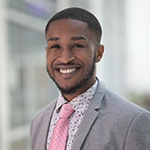
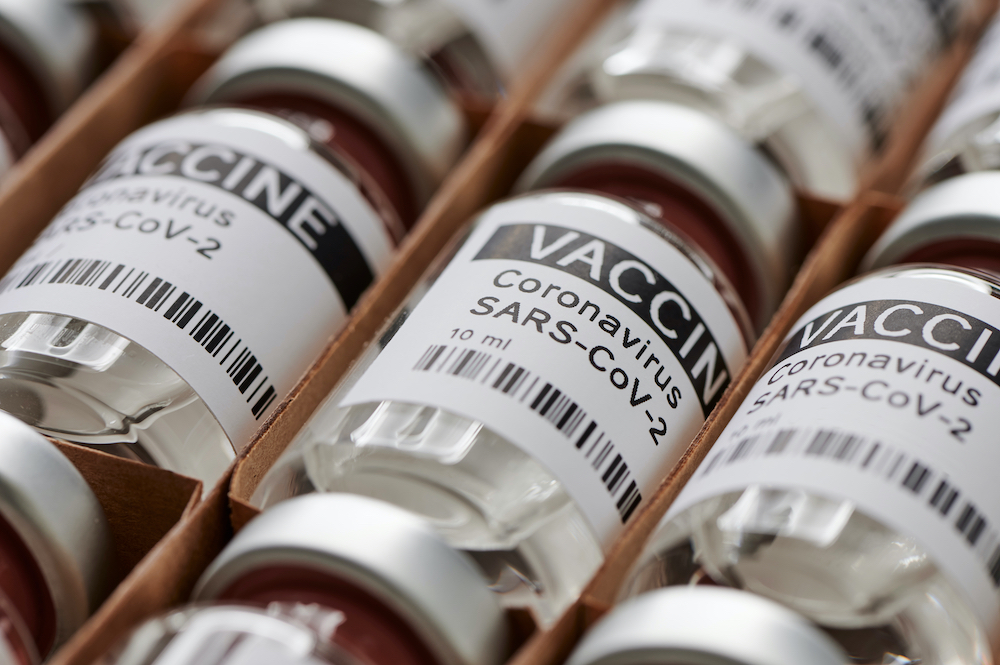
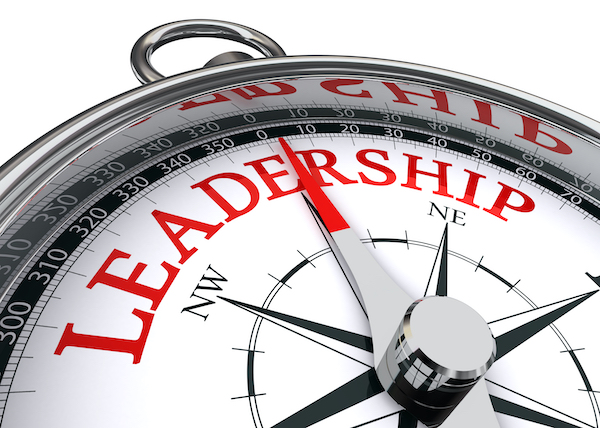
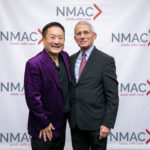
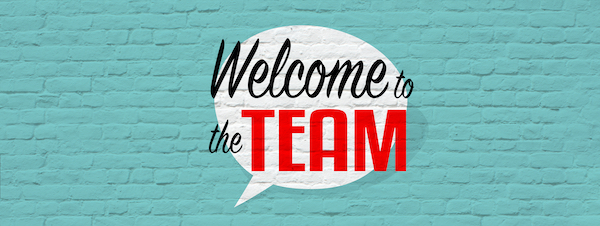
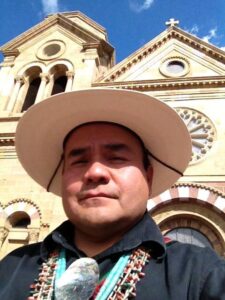
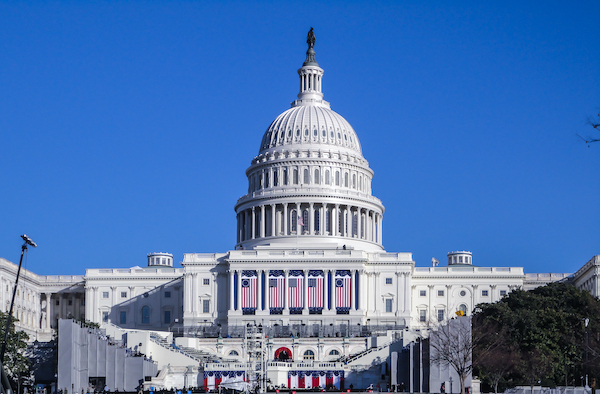
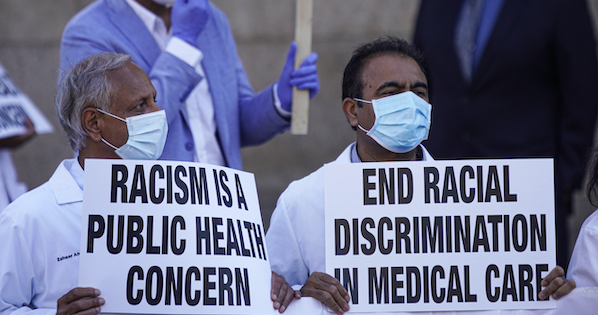
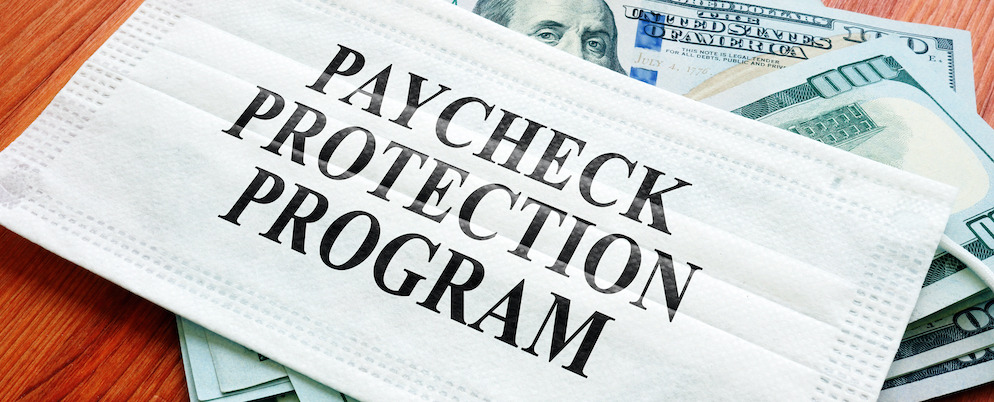


















 Last week
Last week  The
The  Thank you to everyone who attended NMAC’s Hill Champions fundraiser. If you were unable to join us, please watch the event for free
Thank you to everyone who attended NMAC’s Hill Champions fundraiser. If you were unable to join us, please watch the event for free  matching challenge from NMAC board members Norm Nickens and John Hill, your donation will be doubled. We were able to increase HIV support by hundreds of millions of dollars in the Trump administration. Imagine what we can do during the Biden presidency. Thank you for your support and please be safe during these stressful times.
matching challenge from NMAC board members Norm Nickens and John Hill, your donation will be doubled. We were able to increase HIV support by hundreds of millions of dollars in the Trump administration. Imagine what we can do during the Biden presidency. Thank you for your support and please be safe during these stressful times.
